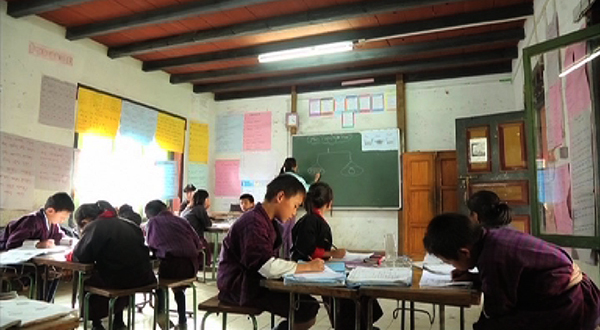 In order to facilitate quality learning for a 21st-century education, the Royal Education Council (REC) has initiated a major curriculum reform in all subjects. It endorsed the rationalised school curriculum and revised instructional time for immediate compliance and implementation last month.
In order to facilitate quality learning for a 21st-century education, the Royal Education Council (REC) has initiated a major curriculum reform in all subjects. It endorsed the rationalised school curriculum and revised instructional time for immediate compliance and implementation last month.
The rationalisation of the curriculum is based on recommendations of the Bhutan Blueprint 2014-2024, the National School Curriculum Conference 2016 and the resolutions of the 19th National Education Conference.
The findings from the Bhutan blueprint, national school curriculum conference and education conference found the existing curriculum to be heavy and vast.
In response to the findings, REC reviewed and screened out obsolete, irrelevant content, updated them with most recent information and rectified errors in the textbooks.
The curriculum specialist from the REC, Wangpo Tenzin said it has been a concern for REC that students do not enjoy studying because of the academic workload of content knowledge, project works and other personal development programs.
“Further, owing to the size of the curriculum, students need to carry a heavy load back and forth every day, which is detrimental for the health of youth. The size of the curriculum has negative effects on students’ learning and encourages rote learning rather than learning through understanding,” he added.
“The 19th NEC resonated the same and declared that there shall be no teaching on Saturday. Accordingly, the REC has been directed to reduce the size of the syllabus.”
The focus of the school curricula from PP to 12 will now shift on teaching the basics of the subjects by shading away from heavy textual information and exercises.
The instructional time for each subject across all grades has also been revised. The curriculum rationalisation process helped REC to incorporate feedback collected over time.
“The rationalised curriculum provides time for active engagement of students in learning by translating the learnt concepts into practical skills in the real-life environment,” Wangpo Tenzin said.
He said REC is integrating life-related themes such as nutrition, comprehensive sexuality education, life skills, consumer protection, financial literacy and culture and tradition in different subjects.
Learning in the 21st century develops competencies through the active engagement of learners. The rationalisation of the curriculum is expected to provide more time for students to engage in learning activities.







